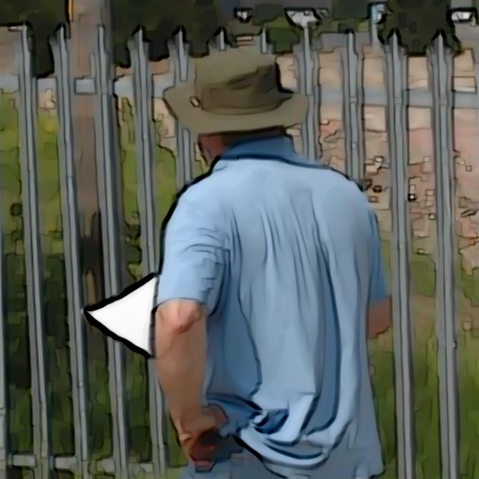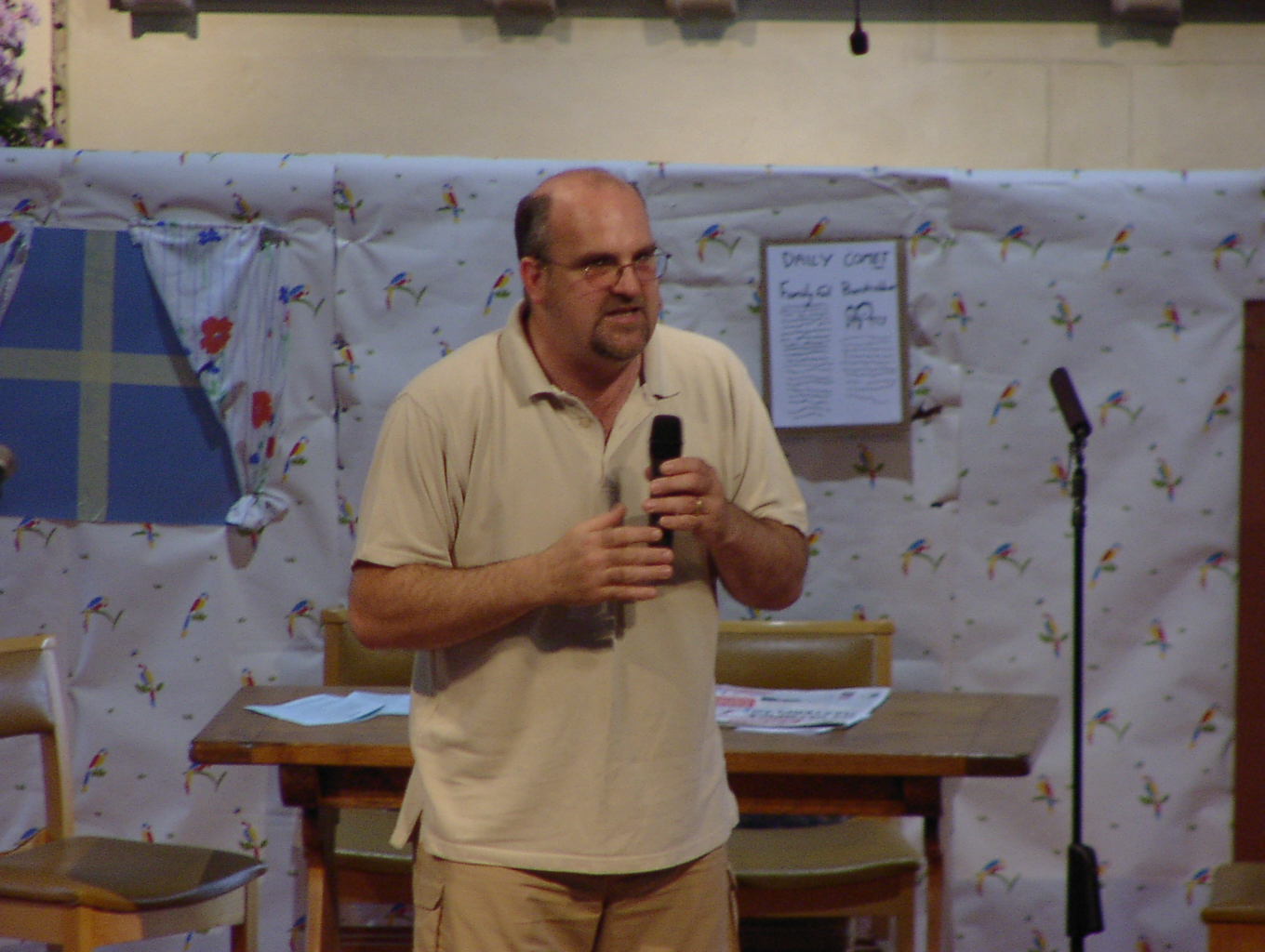Story 45 – Peter, Aeneas & Tabitha
Based on Acts chapter 9 verses 32 – 43
So the church had a period of peace and growth throughout the region. And as it grew, Peter left Jerusalem and started an itinerant ministry, going from place to place encouraging the believers and telling those who hadn’t heard – about Jesus.
And, as he moved around, he eventually came to a place called Lydda, at the intersection of a couple of extremely important trade routes, up to the north west of Israel. His purpose for coming was to encourage and build up the believers there. However, while he was in Lydda, he came across a man named Aeneas who was paralysed – and had been for at least 8 years.
Maybe Peter was reminded of another paralysed man confined to his mattress? It had been during the time when Jesus was with them and He’d been teaching in a house jam-packed to overflowing. The friends of the paralysed man had been so insistent that he reached Jesus that they’d literally taken part of the roof off in order to lower their friend down in front of Jesus so that Jesus could heal him. It hadn’t gone quite as they’d expected because, instead of instantly curing their friend as they’d hoped, they’d watched as Jesus had not offered healing – but forgiveness – because Jesus had seen past the paralysis to the real deep-felt need of the man.
Then, to prove to the doubting Jewish leaders present that He had the authority to forgive sins, Jesus had gone on to heal the man – much to the delight of his friends – and told him to pick up his mat and go home! An instant healing, undeniable and truly miraculous.
Now here was poor Aeneas who, like that other man, was confined to his mattress. He’d been like if for 8 years with no hope whatsoever of freedom or change. No doubt filled with compassion for Aeneas, Peter looked at him and spoke to him directly, in very much the same way Jesus had spoken directly to that other paralytic once the issue of sin had been sorted. But Peter didn’t rely on his own power or for a moment think he could change Aeneas’ condition. Instead, Peter pointed to the real source of power by saying, ‘Aeneas, Jesus the Christ heals you.’
Quite what Aeneas felt I don’t know, but Peter wasn’t happy to leave it at that. Jesus hadn’t healed the paralytic lowered through the roof and then left him on his mat! Instead, Jesus had commanded the man to respond to the healing – an undeniable proof of the miracle that had taken place as well as being undeniable proof of Jesus’ ability and willingness to forgive sin! So, in the same way, Peter spoke again to Aeneas, ‘Now get up, and make your own bed’ – a task sounding so simple, but which had been impossible for him for 8 years. And, like the paralytic that Jesus had healed, who’d got up, picked up his mat and walked home, Aeneas also got up – no doubt both overwhelmed and overjoyed by what had happened to him.
When Jesus had healed that paralytic, it had been obvious to all, and the reaction of those present at that time had been to glorify God, saying, ‘We have never seen anything like this before.’ And, in a similar way, the story of what had happened to Aeneas spread like wildfire throughout the whole of Lydda and the plain of Sharon. People saw the once paralysed man walking about and living his life by the power of Jesus working through Peter. They met him, spoke to him and no doubt the story was told over and over again about how wonderful and merciful the Lord had been to him. And, as people heard, the Holy Spirit moved in an incredibly powerful and deep way, as everyone responded by turning away from their old way of life and towards Jesus, believing in Him and accepting Him as their Saviour. (PAUSE)
Now, during the time Peter was in Lydda, an incident happened in Joppa which was about 11 miles away up to the north east, on the coast. The believers in Joppa must have heard about Peter’s visit to Lydda and the news of what’d happened to Aeneas. So, when the incident happened, the believers in Joppa didn’t hesitate to call for Peter, knowing that his proximity to them was no coincidence.
What had happened was that a dearly loved member of their church had died. Her name was Tabitha and she was the kind of person whose love for Jesus simply shone through in the love she had for the destitute widows and the poor and needy people in the church at Joppa. That love caused her to work hard to meet their needs as she was best able which, in her case, involved making and providing essential clothing such as undergarments and cloaks that the needy and vulnerable simply couldn’t afford. Although I don’t know for certain, I suspect that Tabitha’s death had caught the church by surprise, that maybe she wasn’t of an age when they would’ve expected her to die. Whatever the cause, when she died, the believers at Joppa realised that Peter was nearby and so they washed and prepared Tabitha’s body for burial but, instead of burying her, they placed her on a bed in an upper room and sent a couple of men to hurriedly get Peter and return without delay.
These people realised that God had moved in such a way that Peter was close enough to get to them quickly and that God had used Peter to do many miracles – not least the latest one everyone was talking about when he’d healed Aeneas, the paralytic. And so, they trusted God that, if He wanted, He could work again through Peter in this sad situation.
No doubt Peter was a busy man. Many, many people had turned to Jesus in Lydda and Sharon but, instead of thinking he had to stay there, Peter trusted God and the church in Lydda and Sharon to help these new believers, and made himself available to respond to this urgent invitation to go to Joppa. So, he got up and went with the men as quickly as he could.
When Peter arrived, he was hurriedly shown to the upper room where Tabitha’s body was laid out and where a crowd of widows wept and showed Peter all the garments Tabitha had made for them. Clearly Tabitha was a dearly loved and sorely missed woman.
I wonder if this situation reminded Peter of another incident that had happened when he’d been with Jesus? Another time when there had been a house full of weeping people and, not a woman, but a little girl of 12, lying dead on her bed? At that time, Jesus had put everyone else out of the house except for Peter, James and John and the girl’s parents. In a similar way, Peter ushered out the weeping widows until he was alone with the dead body of Tabitha laid out on the bed.
Peter knew he needed Jesus’ help to deal with this situation. With the little girl, Jesus had simply said, ‘Talitha koum’ which means, ‘Little girl, I say to you – get up!’. But Peter wasn’t Jesus and so he did what had become so natural and easy for him to do, he knelt down at the bedside and prayed to the Lord he loved and trusted. Then, turning to the body on the bed, Peter said, ‘Tabitha koum’. Almost the same words Jesus had spoken to the little girl except for one letter difference.
The little girl had got up at once and begun to walk around, and Jesus had instructed her parents to give her something to eat. But Tabitha simply opened her eyes as if from a long sleep. Then, seeing Peter there beside her, she sat up and Peter held out his hand to help her get up.
Well, as you can imagine, there was a great deal of rejoicing when Peter presented Tabitha alive again to the believers and widows. And, of course, the news of what had happened spread like wildfire around all Joppa and many people believed in the Lord Jesus because of what had happened. (PAUSE)
And after that? Well, even though Peter was an apostle, God was still very much at work in his life. He’d been brought up as a strict Jew and that meant he’d been taught what the Jews considered to be right and wrong. However, Jesus had started the process of showing Peter that what he’d been brought up to believe – wasn’t quite as straightforward as he’d thought. For example, when Philip had told Samaritans (whom Jews hated and avoided at all costs) about Jesus, many Samaritans believed. Then, Peter himself, along with John, had visited these Samaritan believers to see what was happening, and the Lord had allowed those people to receive the Holy Spirit in the same way the Jewish believers in Jerusalem had done. This was unthinkable for a Jew – that anyone outside of the Jewish faith could be added to the church. But Peter could not deny what Jesus was doing and so the new church now consisted of BOTH Jews and Samaritans.
And, maybe because of this, because Peter realised that Jesus was breaking down barriers and challenging his prejudices, he was able to do something that just a few years ago would have seemed unthinkable.
A tanner had become a believer in Joppa and had invited Peter to say at his house. Now, tanners ‘tan’ animal skins to create leather. Therefore, they have to deal with dead animals which, according to the Jews, made them unclean. A Jewish synagogue at that time would not have allowed a tanner to join them and, if you had dealings with a tanner, you would be considered to be unclean. But, obviously, Peter saw that this tanner, also named Simon, was a real believer because, rather than rejecting him and his offer, Peter stayed at his house for a long time as the Lord continued His work in Joppa and beyond.

